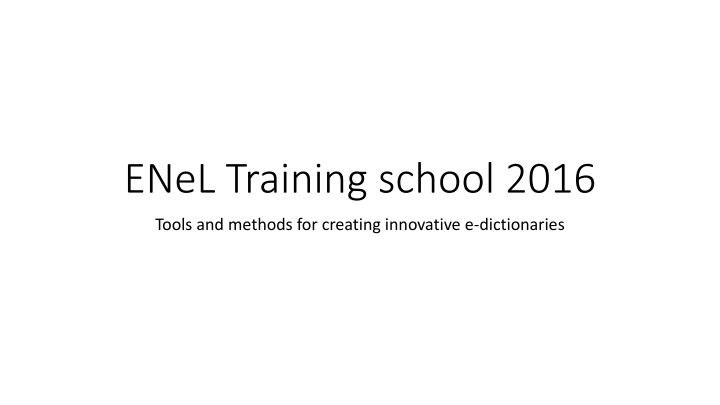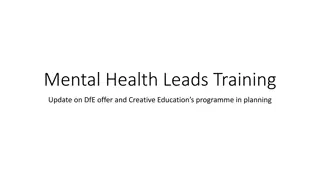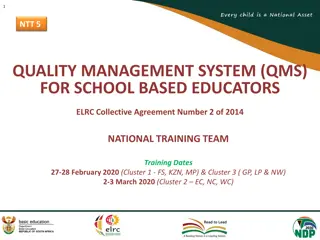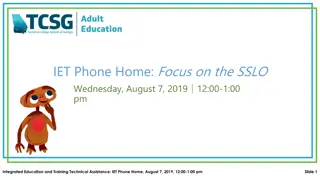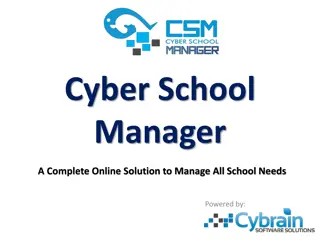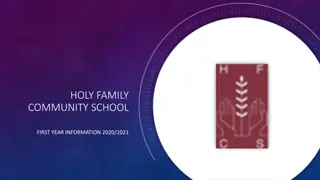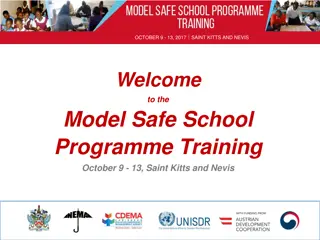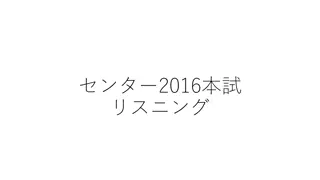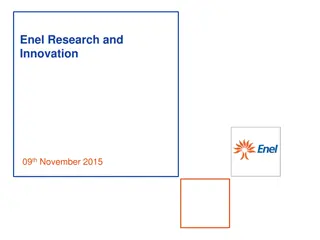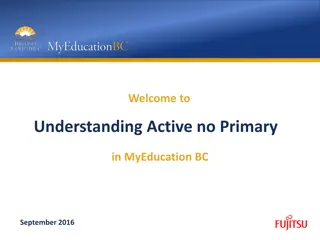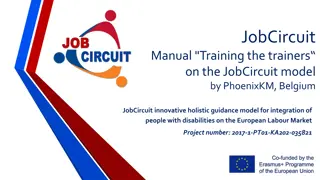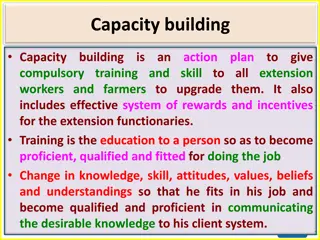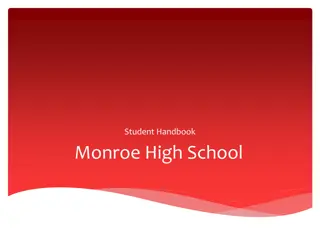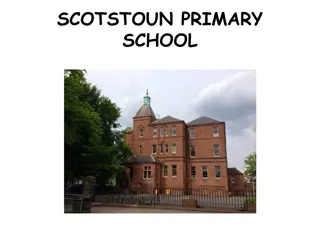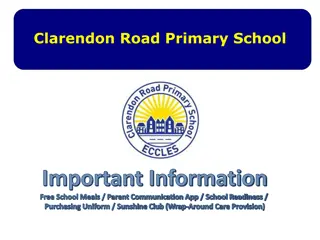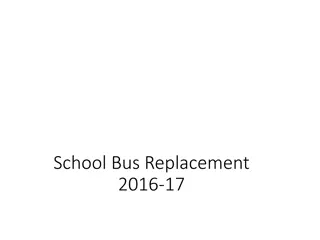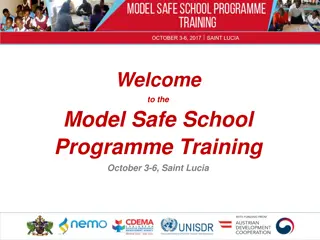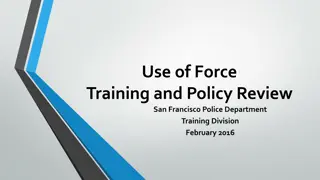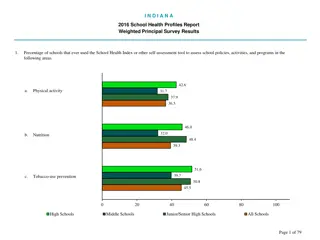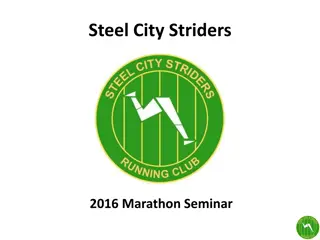ENeL Training school 2016
Dive into the world of e-dictionaries with ENeL Training School 2016, where you'll learn about cutting-edge tools and methods for innovation. Explore the dynamic landscape of digital lexicons and enhance your skills in creating e-dictionaries that are both innovative and user-friendly. Gain valuable insights into the latest trends and techniques in dictionary development, setting you on the path to becoming a proficient digital lexicographer.
Download Presentation

Please find below an Image/Link to download the presentation.
The content on the website is provided AS IS for your information and personal use only. It may not be sold, licensed, or shared on other websites without obtaining consent from the author.If you encounter any issues during the download, it is possible that the publisher has removed the file from their server.
You are allowed to download the files provided on this website for personal or commercial use, subject to the condition that they are used lawfully. All files are the property of their respective owners.
The content on the website is provided AS IS for your information and personal use only. It may not be sold, licensed, or shared on other websites without obtaining consent from the author.
E N D
Presentation Transcript
ENeL Training school 2016 Tools and methods for creating innovative e-dictionaries
Practical information Location: Central Hotel, Ljubljana, Slovenia Dates: 17-20 May 2016 Local organisers: University of Ljubljana (Centre for Language Resources and Technologies) Simon Krek Trojina (Centre for Applied Linguistics) Iztok Kosem Topics: Introduction (presentation of different successful innovative e-dictionaries projects) Corpus building (Corpus Query Systems, Web as Corpus) Data modelling, automatic extraction procedures Online publication and web design (Dictionary Writing Systems, online publication)
Description In the context of ENeL Working Group 3 innovative dictionares are defined as digitally-born. This means that they no longer resemble traditional paper dictionaries but try to fully exploit the new possibilities of the digital medium using methods from computational linguistics. In this Training School participants will learn about tools and methods that are used to create innovative e-dictionaries. Participants will learn how to collect and analyse (corpus) data for a chosen language, automatically extract data using one of the available extraction procedures or applications, and how to edit and publish extracted data in one of the available (online) dictionary writing systems and/or publishing platforms. The programme includes both theoretical courses and hands-on sessions.
Instructors/teachers Egon Stemle (WaC, corpus building) EURAC, Italy Milo Jakubi ek (corpus query system Sketch Engine, extraction) LCL, Czech Republic Simon Krek & Iztok Kosem (data modelling, extraction) University of Ljubljana, Slovenia Carole Tiberius (data modelling, extraction) Institute for Dutch Lexicology, the Netherlands Michal Boleslav M chura (dictionary writing system Lexonomy & online publication) Dublin City University and Foras na Gaeilge, Ireland
Participants deadline for applications: 15 February 2016 selection process: Rute Costa, Training School Manager Tanneke Schoonheim Simon Krek Carole Tiberius Management Committee decision: 16 March 2016 30 participants 22 reimbursed
Countries and gender Slovenia Germany United Kingdom Croatia Ireland Poland Slovakia Portugal Spain/Basque County Czech Republic Sweden Estonia Belgium Netherlands 6 3 3 3 3 2 2 2 1 1 1 1 1 1 ------------------------------------- female male 18 12
Contact for logistic questions related to the Training school TSLjubljana2016@gmail.com for financial questions/reimbursements Tanneke Schoonheim, Instituut voor Nederlandse Lexicologie Tanneke.Schoonheim@inl.nl for queries on the content of the Training School: Simon Krek, University of Ljubljana, Center for Language Resources and Technologies simon.krek@guest.arnes.si, simon.krek@ijs.si
